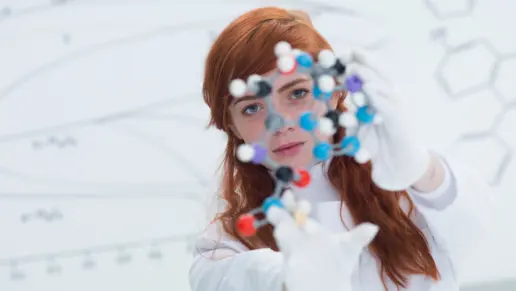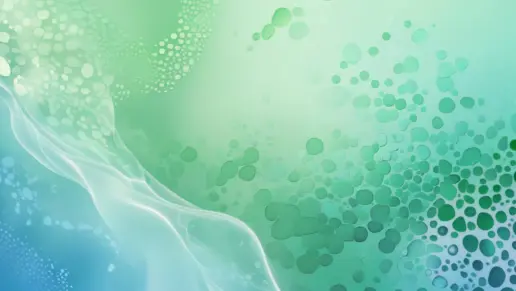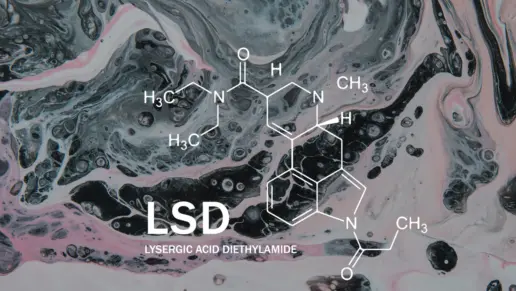Ayahuasca is a psychedelic brew that can be a healing and awakening experience or a depressing, frightening one depending on the individual. Ayahuasca can produce different side effects for each person who uses it.
What Is Ayahuasca?
Ayahuasca is a natural substance, but there’s no such thing as an ayahuasca plant. And so you might be wondering what ayahuasca is made of.
The drug is created by combining a hallucinogen like the leaves of the Psychotria viridis bush with something that has monoamine oxidase inhibitors (MAOIs) like the bark of the Banisteriopsis caapi vine.
Pharmaceutical-grade MAOIs are often used to treat depression. In high amounts they can also produce psychoactive effects. Mixing these two ingredients leads to a powerful psychedelic experience.
The drugs alter the functioning of the central nervous system which causes people to go into an altered state of consciousness. Some people experience heightened awareness and euphoria while others experience adverse effects.
Ayahuasca is not legal for recreational use in the United States. However some religions can use it for rituals or spiritual activities. Ayahuasca retreats are popping up worldwide even in America, though their legal status varies.
Potential Benefits of Ayahuasca
Ayahuasca is not currently used in therapies in the United States but researchers around the world are finding it may have potential benefits for those suffering from mental health disorders.
Some of the benefits include the following:
- It may protect and restore parts of the brain by regenerating neurons and reducing inflammation caused by stress
- It increases mindfulness by allowing a person to be present and aware of their current mental and physical needs
- It improves a person’s mood and their ability to regulate emotions
- It can produce rapid improvements in mood disorders such as depression and anxiety.
- It improves memory retrieval so people can process traumas
- It can reduce or stop the misuse of drugs or alcohol in people with addiction
Research is limited and relatively new but some evidence suggests that ayahuasca may be beneficial in the treatment of mental health disorders. This is a significant discovery and may help people who have tried many different therapies but with no improvements in their symptoms.
Ayahuasca Assisted Therapy for Substance Use, Depression and PTSD
Ayahuasca comes from the Amazon rainforest. Its ritualistic uses can be traced back hundreds of years. It became more popular in the early 1900s for religious or spiritual activities. Its popularity continues to rise worldwide. Many people seek it to help them overcome mental health disorders and past traumatic memories and to find insight and emotional healing.
The drug’s popularity has gotten the attention of academics, researchers and pharmaceutical companies. Researchers are working to understand exactly what it is that ayahuasca does and to see if it can have therapeutic uses for physical and mental health disorders.
Psychedelic assisted therapy or ayahuasca assisted therapy means a person is given a small, controlled dose of the drug under the clinical supervision of a psychiatrist, medical staff or therapist.
It is very similar to ketamine assisted therapy or psilocybin assisted therapy which is helping people with mental health disorders in the United States make considerable strides in improving their overall mental health and quality of life.
Psychedelic assisted therapies were initially used to help people with treatment resistant depression. Some research indicates that its benefits may be extended to people with substance use, post traumatic stress, depression and anxiety disorders.
A review of studies found in the National Library of Medicine shows there are therapeutic benefits of ayahuasca for mental health disorders. Depression, anxiety, eating disorders, post traumatic stress disorder and personality changes are the primary areas in which ayahuasca benefits appear.
Depression
The effects of ayahuasca in various studies showed a significant decrease in depressive symptoms. Participants noticed an improvement in mood after one dose. It also lowered cortisol levels which means it may play a role in balancing stress related hormones.
Anxiety
Ayahuasca was found to decrease social anxiety while increasing the individual’s sense of spirituality and quality of life. Of all participants, 54% found the drug to “very much” improve their symptoms and 16% reported their symptoms were “completely resolved.”
Ayahuasca also lowered general anxiety and reduced substance misuse and engaging in binging or high risk drug and alcohol use.
Eating Disorders
When used as a treatment for eating disorders, ayahuasca was found to decrease eating disorder symptoms and help participants experience more profound healing and better emotional and memory processing. It was also found to add a spiritual component to healing. Therapists found participants more open to lessons on positive body image, self care and self love.
Post Traumatic Stress Disorder (PTSD)
Participants using ayahuasca for PTSD noticed significant reductions in anxiety and increases in self compassion. Positive effects remained at a six month follow up which shows the drug has lasting benefits.
Personality Changes
Personality disorders in which people have changing moods can be challenging. Research suggests that using ayahuasca may be associated with decreased neuroticism, improved cognitive flexibility, and self empowerment. Participants also showed increased mental and emotional empathy, life satisfaction and mindfulness.
Substance Abuse
According to participants in one study ayahuasca is a valuable tool in overcoming substance use disorders. It is not a cure but they claim it was a powerful tool for self reflection. It helped them see how their substance use was tied to family history and it brought developmental traumas that had been stuffed down to the surface.
Other benefits included emotional healing, improved psychotherapy outcomes, enhanced clarity and what was described as a mental cleansing that allowed them to move forward. Most importantly it helped people reduce or stop their misuse of drugs and alcohol.
Is Ayahuasca Safe?
When ayahuasca is administered under medical supervision in a clinical setting then the low dose protocol is generally considered safe and may be effective. When it’s taken recreationally and without any guidelines then it can be unsafe and possibly dangerous. One reason is that ayahuasca can interact with various prescription drugs.
These include:
- Selective serotonin reuptake inhibitors (SSRIs)
- Selective norepinephrine reuptake inhibitors (SNRIs)
- Monoamine oxidase inhibitors (MAOIs)
- Tricyclic antidepressants
- Some cough medicines
- Lithium taken for bipolar disorder
- Methadone
Ayahuasca can increase blood pressure so anyone with a heart condition must avoid taking it. Anyone with hallucinatory symptoms caused by substance abuse or schizophrenia must avoid taking it.
Doctors and researchers can’t even answer the question “How long does ayahuasca last?” definitively because it varies per person. The length of time it lasts can affect all areas of your life and could impact your work and social performance.
Side Effects of Ayahuasca Use
Side effects of ayahuasca can include mental and physical symptoms and some can be unpleasant. Each person will experience different effects when taking ayahuasca since many factors determine which effects appear. The amount of drug taken, weight, stomach contents, gender and metabolism all play a role.
Some common effects may be cognitive and include the following:
- Altered perception
- Emotional changes
- Psychological distress
- Anxiety
- Depression
- Euphoria
- Hallucinations
- Nightmares
Physical changes also occur when taking ayahuasca. Some note the changes make them feel better while others say they increase negative symptoms.
Physical side effects may include:
- Nausea
- Vomiting
- Digestive issues
- Muscle aches
- Stiff joints
- Dehydration
- Changes in breathing rates
- Chest pains
- Seizures
- Fainting
No one should try ayahuasca without consulting a medical doctor to discuss potential side effects, medication interactions and how to respond to adverse symptoms. Taking the drug is not worth experiencing symptoms that may be irreversible.
Risks of Ayahuasca Use
Anyone using ayahuasca is altering how their brain functions which then alters how the rest of the body functions. If you’re uncertain how you will respond to the drug then it is very risky to take it.
You have the potential to experience one or more of the following:
- Habit forming if taken recreationally
- Overdose if too much is taken
- Coma
- Seizures
- Indirect harm like falls, injuries, accidents
- Serotonin syndrome
- Heart related events
- Death
Ayahuasca may be given approval for clinical use in the future like other psychedelic drugs have been given. Medicinal approval does not equate to safety for every person. You must consider the risks as they apply to your physical and mental health before consuming the drug.
Ayahuasca Research
Researchers are studying ayahuasca on an ongoing basis in both animals and humans. Major research organizations in the United States are conducting studies on psychedelics like mushrooms and ketamine. It is only a matter of time before they begin studying the effects of ayahuasca on mental health like they are already doing around the world.
Varying studies on ayahuasca focus on its effects in treating mental health disorders, neurological repairs, brain functioning and whether it has long term therapeutic value. Much research has been done in the category of psychedelics but more research is needed on ayahuasca specifically.
What Are Other Treatment Options for Drug Addiction?
Until ayahuasca is confirmed through research to be an effective treatment for substance use disorders, it is critical to continue using treatment options that are evidence based and effective with long term benefits such as maintaining recovery and avoiding relapses.
Treatment options range from intensive inpatient to support groups each benefiting participants. Below is a brief description of each service available today that has helped millions of people in recovery.
Detoxification
Many people must detox from substances before they can benefit from other therapies. Depending on the type of drug, amount used and length of use they may need inpatient detox or outpatient detox.
Inpatient detox occurs in a hospital or residential setting with round the clock medical supervision. Medications are given to manage withdrawal symptoms which can be severe and sometimes life threatening. Alcohol and opiates are the primary drugs that need medically supervised detox which can take a week or longer.
Outpatient detox occurs in a community clinic. An example is a methadone clinic where a person arrives daily to receive their dose of methadone.
Another option is a Suboxone clinic where physicians can give someone prescriptions for Suboxone and other medications to help with withdrawal symptoms. Clinics may have strict rules to follow including attending individual and group counseling.
Inpatient Treatment
Inpatient treatment is typically recommended for people who can benefit from being away from their home environment to focus only on recovery. Two types of inpatient treatment exist:
Inpatient rehab occurs in a hospital-like setting and is where people leaving detox often transfer. Here they continue medication management for withdrawal symptoms while also attending individual, group and family therapies. They also participate in support groups and alternative therapies.
Residential rehab is an inpatient option where someone lives in a house with other people in recovery. They are still required to attend individual and group activities and support services. However they get to practice sober living before they transition to a less intensive level of care or back into their home environment.
Outpatient Treatment
Outpatient services can range from intensive to less restrictive. They can be a starting point for some people entering treatment or a step down program for someone leaving an inpatient setting.
A partial hospitalization program (PHP) is an intensive service that participants must attend for at least five hours daily. It involves all the treatment activities offered in inpatient services but participants return to their home environment at the end of the day.
An intensive outpatient program (IOP) operates three to four days a week and participants attend at least three hours daily. Here they continue learning recovery skills through individual and group therapies. They can discuss real time recovery issues that occur when they are at work and home outside of the treatment facility.
Individual counseling typically refers to one on one therapy with a licensed professional to discuss your recovery progress, help you set goals and create a plan to reach your goals. Family therapy is often recommended as a supplement.
Aftercare
The best treatment programs include aftercare services. These services prepare patients for recovery in the real world by connecting them with community resources that can help them succeed in various life areas. Before discharge from treatment, case managers or therapists create a list of needs or goals and establish a connection.
Aftercare resources include transportation, housing, childcare, employment training, job search, continuing education, attending mental health appointments, local support groups and medication management. Every person’s aftercare plan is based on their specific needs and preferences.
If you want to learn more about ayahuasca and the potential therapeutic benefits for mental health or substance use disorders, reach out to your local mental health treatment center. You may also contact a local licensed mental health professional.
They can answer your questions, like “What is ayahuasca?” or “Is ayahuasca legal?” They can assess your needs and refer you to various treatment options that can offer the same outcomes as ayahuasca assisted therapies.
Substance Abuse Rehab Centers Near You
Finding facilities near you…




